- Home
- David Lubar
Beware the Ninja Weenies Page 2
Beware the Ninja Weenies Read online
Page 2
FWABOOMPH!
The glass doors in front of the fireplace flew open. Someone burst into the room. He was dressed like Santa Claus, but in reverse, with a white outfit bordered in red trim. He was very thin, fairly young, and thoroughly sooty.
Carol didn’t scream or jump or gasp. She went to school with the McGurdle triplets, who were totally hyperactive and always hurling things at one another, and with Valerie Tadzmire, who screamed at the top of her lungs every time she spotted a bug, or even a drawing of a bug. So Carol wasn’t easily startled or disturbed.
“Is everything okay?” her mother called from the kitchen.
“It’s just fine,” Carol called back.
The stranger took a step toward her, then waited. Carol waited, too.
“Aren’t you going to ask me who I am?” the stranger said.
“I’m pretty sure you’re planning to tell me,” Carol said.
“I am the Spirit of Christmas Presents,” the stranger said, as if she had actually asked the question. “And I am here to grant you your wish.”
“Wait,” Carol said, holding up one hand. “A present and a wish aren’t the same. You seem to be a bit mixed up. If you’re the Spirit of Christmas Presents, why are you granting wishes? Shouldn’t you be a genie or the Spirit of Christmas Wishes, or something like that, if you want to grant wishes?”
“Look, I don’t make the rules,” he said. He sneezed, then rubbed his soot-streaked nose with one hand.
“Ick. Cover your face next time,” Carol said.
“Sorry.” He took off his hat, wiped his nose, then put it back on. The hat, that is. The nose was already on.
“As I was saying, I have come here to grant you your wish and teach you a lesson. It will now always be Christmas. Every day. Forever.” His voice deepened as he drew out the last word.
“Yay!” Carol said. “That’s awesome. Every day?”
“Every single day,” he said, as if this could possibly be a bad thing.
“Cool. Thanks.” Carol slid off the couch and headed for the kitchen. It smelled like the pancakes were ready.
She spent a wonderful day enjoying her presents and exchanging messages with all her friends. None of them had gotten a cashmere sweater.
She was thrilled the next morning to discover that it was Christmas again. She got to unwrap a whole new pile of presents. Some were the same—her uncle Milton always sent her a calendar—but others were delightfully different. Instead of a sweater, she got two pairs of jeans and a belt.
And it was Christmas once again the morning after that. And the next morning. And the next.
Every day was Christmas.
After a month or two—Carol had stopped counting days—the fireplace doors FWABOOMPHed again, and the Spirit of Christmas Presents staggered out.
“Well, Carol,” he said, “what have we learned?”
“Learned?” she asked.
He nodded. “Yes. What have we learned?”
“Well, there’s no school on Christmas. So, while I can’t speak for you, I know I’ve learned absolutely nothing.” She held up a box of chocolates her aunt Gertrude had sent her. “Want one?” she asked.
“No, thank you. But listen—I’m not talking about things you learned, or didn’t learn, in school. What has getting your wish taught you?”
Carol looked at the scattered presents, then sniffed the wonderful aroma of waffles, which her parents made on Christmas mornings when they didn’t make pancakes, French toast, or coffee cake.
“Getting my wish has taught me that if you keep making impossible wishes, one of them might actually come true someday, and then things will be perfect and wonderful forever and ever.”
“No, no, no,” he said. “Aren’t you tired of getting presents?”
“Are you kidding?” Carol reached down and picked up a doll from the pile of toys at her feet. “This one talks and takes videos. I got two new books, a microscope, and a bead-craft kit. If I wished for anything at all, it would be for a longer day.”
“What about TV?” he asked. “Aren’t you getting tired of the Christmas specials?”
Carol shook her head. “I could watch A Christmas Story all day, every day.”
“No school?” he said.
“What’s your point?” she asked.
The Spirit of Christmas Presents sighed, got up, and headed toward the fireplace. As he walked, he turned his coat inside out. Now it was orange and black.
“Where are you going?” Carol asked.
“There’s a boy down the street who keeps wishing it would always be Halloween,” he said.
“And now it’s going to be?” Carol asked.
“For him, it will. Until he learns his lesson.”
Carol thought about the kids in her neighborhood. “Is it Seth Porter?”
“That’s the one.” The Spirit of Christmas Presents took off his hat and turned it inside out, revealing more orange and black.
“He’ll totally love it,” she said. “He’ll never want it to end.”
“Great. Just great.” The Spirit of Christmas Presents, who had now slipped into his Spirit of Halloween Treats outfit, climbed into the chimney.
Carol went back to examining the chocolates, trying to guess what was inside each one. It was wonderful knowing she didn’t have to make them last. She’d get another box from one of her relatives next Christmas. And next Christmas was only a day away. A fabulous, present-filled, joy-strewn day.
She nibbled the corner of one of the chocolates. “Mmmmm, lemon creme.”
A moment later, from halfway up the chimney, she heard a faint voice call, “Just give a shout if you ever realize how dreadful and meaningless your life has become.”
“I’ll do that,” Carol said. But she knew she never would.
THRESHOLDS OF PAIN
It was our last night at the beach. We’d been there a week, and had gotten wonderfully burned by the sun, beaten by the surf, and abraded by the sand. We’d already explored all of Wavecrest Cove, the town where we were staying, so after dinner, Dad drove us down to Regence Beach, which had a short boardwalk and an amusement pier.
There was only one roller coaster, but it was a good one. Dad and I rode it twice, once up front, and once in the back car, while Mom took my little brother and sister on the kiddie rides.
We played some games after that, even though Dad told us there wasn’t much chance of winning. He was right, but it was still fun to try.
Then I saw it. Right between the BB gun shooting gallery and what must have been the eighty-seventh pizza place. BUCK NoRDSTRUM’S AUTHENTIC AMAZING SIDESHOW. That’s what the sign said.
“Dad, look!” I grabbed his arm and pointed at the posters over the entrance. They promised wonders beyond anything the human mind could imagine.
I saw Dad’s expression. He was interested, even though the interest was quickly replaced by a good-parent face. “That’s not really appropriate entertainment for young people,” he said.
“Oh, come on. There’s a guy who eats glass! And a lady who turns into a gorilla! We have to go. There’s no way we can miss this.”
I watched Mom to see whether she’d have a problem with it. If she didn’t kill the idea, I knew I could get Dad to go.
She barely frowned. “I’ll never understand why you’re so fascinated by that sort of thing.”
That was good enough to make me forge ahead. “Please, Dad? There’s nothing like this anywhere near us. It’s our only chance. Remember when we went to the Ripley’s Museum in San Francisco? That was awesome. This will be great, too. Can we?”
I totally loved anything weird—monsters, carnivals, flying saucers, aliens with three eyes and tentacles.
“I guess.…”
Score. I tried to keep from bouncing off the boardwalk while Dad bought two tickets. I followed him inside to the waiting area. According to the sign, the next show started in ten minutes.
“Ever been to a sideshow?” I asked.
�
�Once, back when I was your age,” he said.
“Was it good?”
“As far as I remember.” The corner of his mouth twitched into an odd little smirk when he said that.
“What?”
“This one guy hammered a nail up his nose.” Dad held his hand up, with his first finger and thumb spread all the way out. “It was this big.”
“You’re kidding.” I tried to imagine that.
“Nope, I’m not kidding. I’ll never forget it.”
A curtain opened at the far end of the room. A man dressed in a white shirt with a black vest came out and walked to the front of a small stage.
“Welcome. I am Buck Nordstrum. Prepare to be thrilled, dazzled, terrified, and amazed beyond your wildest dreams.”
The first act was a fire-eater. “Pretty cool,” I whispered to Dad as the man put flaming torches in his mouth. We were so close, I could feel the heat. There were only about a dozen other people watching the show, so it was easy to get a spot right near the action.
Dad gave me a funny look. I realized cool wasn’t the best description. But the act was definitely amazing. I’d seen fire-eaters on TV, but never in person.
When the fire-eater was finished, a woman came onto the stage and did a sword-swallowing act. Then they rolled out a chair with the headless lady. I was pretty sure that was a trick. Actually, I was positive it was a trick. Still, it was fun to see. I don’t mind being tricked.
There were six more acts, including the lady who turned into a gorilla—which was definitely a trick, and probably the same performer who’d lost her head earlier—and then Buck Nordstrum stepped back onstage.
“Ladies and gentlemen…” He nodded in my direction and added, “And young men, too. We come to the final act. I present to you—myself. Buck Nordstrum, the Invulnerable Man.”
As he removed his vest, I wondered what sort of trick this would involve. He unbuttoned his shirt, took it off, folded it, and placed it over the back of a chair, on top of the vest. Then he reached into a leather bag at his feet—like the kind of bag doctors carry—and removed a metal knitting needle.
“I must warn you—my performance might be too disturbing for sensitive individuals. If you need to leave, the exit is over there.” He pointed toward a door to our right. An exit sign flickered briefly, then went dark again.
“You okay?” Dad asked.
“Sure. Are you?”
“Can’t be any worse than the nail up the nose.”
Buck Nordstrum pushed the knitting needle into his left forearm, midway between his wrist and elbow. It pierced the top of his arm. He pushed the needle deeper. The skin on the back of his arm bulged. Half a heartbeat later, the point of the knitting needle burst through. He held up his arm and rotated it, so we could see it—and the needle—from all sides. After a moment, he eased the needle back out.
There was no blood. Based on his expression, it didn’t look like there was any pain, either.
I shuddered and moved a step closer to Dad.
“Want to leave?” he asked.
I thought about it. This was the last act, so I wouldn’t miss much if we left. I wasn’t sure whether I wanted to find out what Buck Nordstrum would do next. But when he pulled the long knife from his bag and placed the point of the blade against his throat, I knew I had to stay.
As the blade sank in, half the people rushed for the exit. It sounded like one person threw up, but I couldn’t take my eyes off the stage. Dad put a hand on my shoulder. “I’ve seen enough.”
He stepped toward the exit. I didn’t follow, but I glanced in his direction. Dad turned back. “Come on.”
“Can I stay?”
His gaze moved from me to the stage, and then back. Buck had turned sideways, so everyone could see the knife trying to break through the skin at the back of his neck. “You sure?”
“I’ve seen worse things in video games,” I said. “And on the news.”
That was true. I’d blown alien heads right off with sniper rifles, and ripped limbs from six-armed foes. Violence on the TV wasn’t real to me. They were always showing people getting hurt on the news.
This performance was real, and kind of scary, but I wasn’t going to admit it to Dad, and I wasn’t going to miss out on seeing whatever Buck Nordstrum was going to do next.
“Okay. I trust you to know what you can handle. I’ll meet you right outside.”
By the time Dad reached the door, the knife was jutting out the back of Buck Nordstrum’s neck.
I thought he’d just yank it free. But he shifted his grip on the hilt and pulled the handle toward the left side of his neck. The point moved toward the right side. After slicing a quarter way around, he pulled the blade out.
As hard as I stared, I couldn’t see any sort of cut in his neck. His flesh flowed like rubber around the blade. It had to be a trick. But how could it be? There was nothing between him and the knife except for bare skin. No tubes, no boxes, no silk scarves, none of the stuff magicians use to hide how their tricks work.
The next sharp point—this time in the form of a railroad spike—went into his stomach. By then, there were only two other people left in the audience.
They cleared out when it became obvious that Buck Nordstrum’s final stunt involved a pair of scissors and his right eye.
I stayed.
After he pulled out the scissors, he bowed. “Show’s over, kid.”
I wasn’t ready to leave. There was something I had to know. And it wasn’t about how he did his act. I was pretty sure I’d figured out his secret.
“How long have you been here?” I asked.
“Five years.” He put the scissors down on the table. “We opened the show right after they extended the boardwalk.”
“Not here,” I said, pointing to the stage. “I mean, here on Earth.”
He turned away from me and started putting things back in his bag. “I don’t know what you’re talking about.”
“Yeah, you do. You aren’t human. Which means you’re either a monster or an alien.”
That got his attention. He locked his eyes—both of which were totally undamaged—on mine. “If I’m a monster, you’re better off not being alone with me. Monsters eat small boys.”
I shivered. But I stood my ground. “I’m not small. And I don’t believe in monsters.” I pointed up toward the ceiling, and past it to the stars. “But I do believe in life on other planets.”
He didn’t say anything.
“I’m guessing you’re stuck here.” That was the only possible explanation I could think of for him to start a business on the boardwalk. Even aliens need food and shelter. “So, how long?”
“Fifty years.”
I hadn’t expected him to admit it, and I really hadn’t expected he’d been here that long. I studied his face as he put his shirt back on. He didn’t look any older than my dad. But he could shove a large needle through his flesh without bleeding, and he healed instantly. I guess if he said he’d been here for five hundred years, I’d have to believe him.
I looked toward the exit. Dad wouldn’t wait much longer before checking on me. But there was one more thing I wanted to know.
“Are you stuck here?” I asked.
“For now,” he said. “My people might come by again in fifty or a hundred years.”
“You must feel really homesick.” I couldn’t imagine being stranded an another planet, far away from everything I grew up with. “Don’t you miss your friends and family?”
He picked up the knife.
I took a step back, but I relaxed when I realized he wasn’t coming after me.
“Miss them?” He pressed the point of the blade against his palm until it pierced the flesh. “No more than I feel this.”
That’s when I realized how truly alien he was. And how alien I must be to him. All of us on Earth must seem alien, for that matter, with our feelings, our emotions, our pain. As I backed toward the door, I knew I needed to say something more.
“I
liked the show,” I said. The words felt weak and stupid.
But they made him smile. “Thank you. That’s good to hear.”
I stepped outside, back into the normal oddness of the boardwalk. As I left the sideshow behind, I couldn’t help scanning the sky, drinking in the awesomeness of the universe.
Dad was waiting for me on a bench by the railing. I saw Mom and the rest of my family in line at a frozen custard stand.
“Did it get much worse?” Dad asked when I joined him.
“A lot worse,” I said. “The ending was terrible. But I’m glad I stayed.”
SMART FOOD
I was heading out to my friend Sally’s house when I heard a whisper.
“Hey, kid…”
I looked around. There was nobody in sight.
“Pssst. Down here.”
I looked down. I was standing near Mom’s vegetable garden. There wasn’t anybody in the garden, either. It would be pretty tough to hide behind a head of lettuce or even an overgrown oregano bush.
“Right here!”
The voice was louder. And, now that I was looking at the garden, I could actually tell where it came from. But it couldn’t be coming from where it came from. No way.
“You do hear me, don’t you?”
“Uh, yeah…” I couldn’t believe I was talking to a clump of broccoli. Before I said anything else, I checked to make sure nobody saw me. It wouldn’t be good to get a reputation for holding conversations with vegetables. “I definitely hear you.”
“Good. Because we have a lot to talk about.”
I dropped to my knees so I could get a closer look. As far as I could see, it was just a regular clump of broccoli. “Where’s your mouth?”
“I don’t have one. There’s more than one way to make sound.”
“And how can you talk at all? You’re a vegetable. You don’t even have a brain.”
“I don’t have a meat brain, like yours. But I can think. All of us can think. But I’m the first one who can communicate with people. I don’t know why. It’s just the way I was sprouted. My people have been trying to get in touch with your people for centuries.”
“You’re telling me that all vegetables can think?”

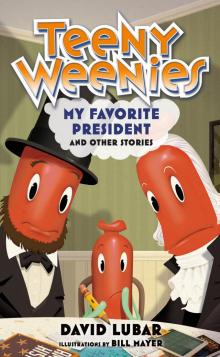 Teeny Weenies: My Favorite President
Teeny Weenies: My Favorite President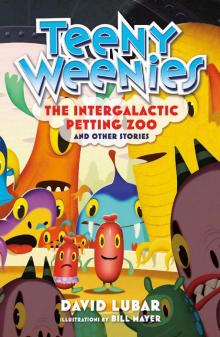 Teeny Weenies: The Intergalactic Petting Zoo
Teeny Weenies: The Intergalactic Petting Zoo Teeny Weenies: The Eighth Octopus
Teeny Weenies: The Eighth Octopus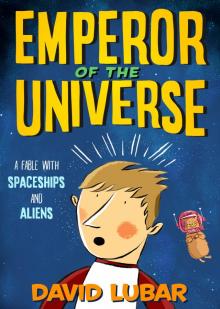 Emperor of the Universe
Emperor of the Universe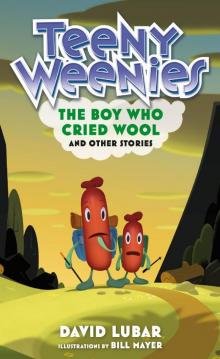 Teeny Weenies: The Boy Who Cried Wool
Teeny Weenies: The Boy Who Cried Wool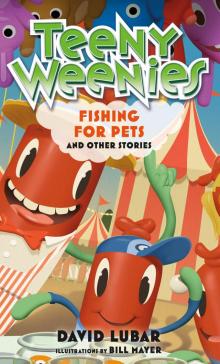 Teeny Weenies: Fishing for Pets
Teeny Weenies: Fishing for Pets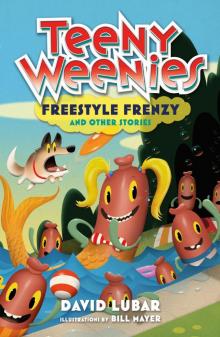 Teeny Weenies: Freestyle Frenzy
Teeny Weenies: Freestyle Frenzy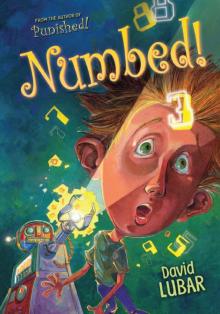 Numbed!
Numbed!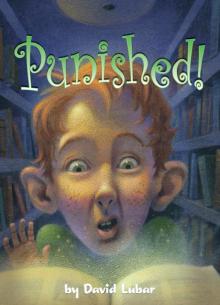 Punished!
Punished!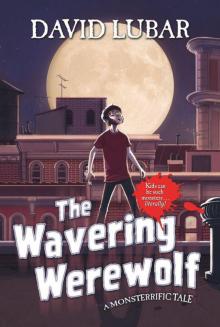 The Wavering Werewolf: A Monsterrific Tale (Monsterrific Tales)
The Wavering Werewolf: A Monsterrific Tale (Monsterrific Tales)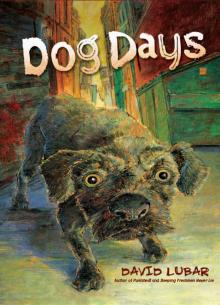 Dog Days
Dog Days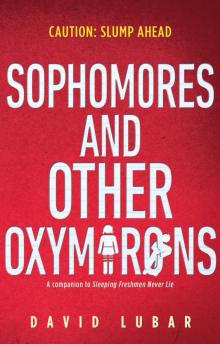 Sophomores and Other Oxymorons
Sophomores and Other Oxymorons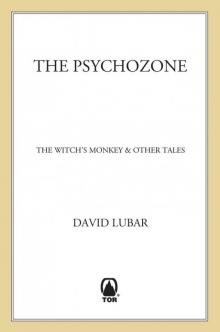 The Psychozone
The Psychozone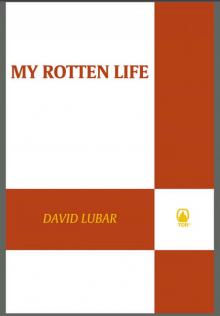 My Rotten Life
My Rotten Life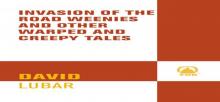 Invasion of the Road Weenies
Invasion of the Road Weenies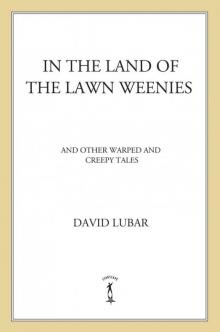 In the Land of the Lawn Weenies
In the Land of the Lawn Weenies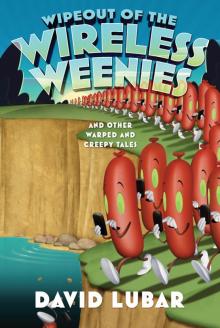 Wipeout of the Wireless Weenies
Wipeout of the Wireless Weenies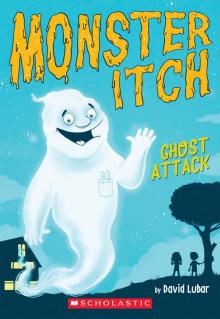 Ghost Attack
Ghost Attack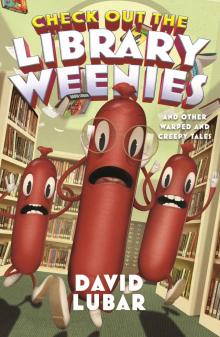 Check Out the Library Weenies
Check Out the Library Weenies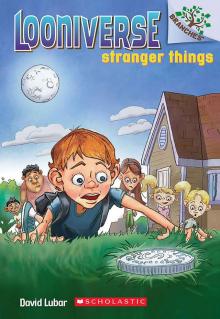 Looniverse #1: Stranger Things (A Branches Book)
Looniverse #1: Stranger Things (A Branches Book)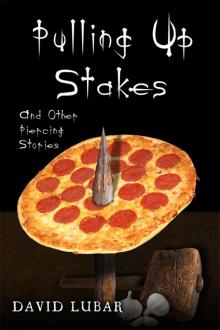 Pulling up Stakes and Other Piercing Stories
Pulling up Stakes and Other Piercing Stories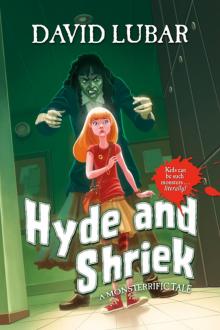 Hyde and Shriek
Hyde and Shriek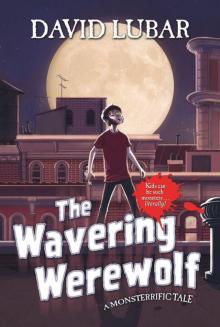 The Wavering Werewolf
The Wavering Werewolf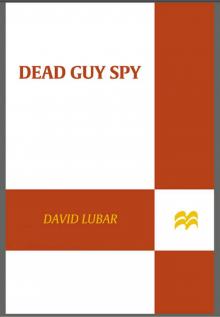 Dead Guy Spy
Dead Guy Spy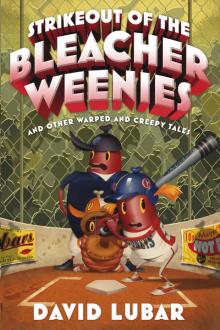 Strikeout of the Bleacher Weenies
Strikeout of the Bleacher Weenies The Big Stink
The Big Stink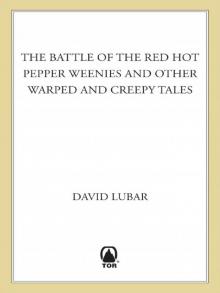 The Battle of the Red Hot Pepper Weenies
The Battle of the Red Hot Pepper Weenies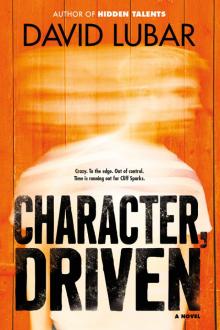 Character, Driven
Character, Driven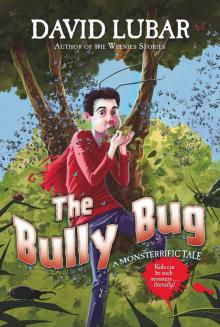 The Bully Bug
The Bully Bug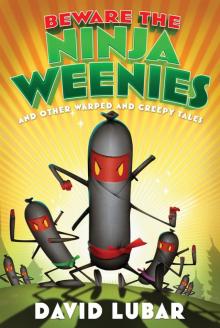 Beware the Ninja Weenies
Beware the Ninja Weenies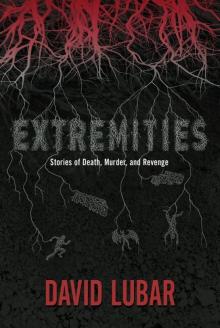 Extremities: Stories of Death, Murder, and Revenge
Extremities: Stories of Death, Murder, and Revenge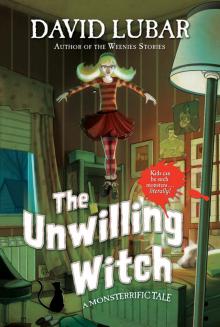 The Unwilling Witch
The Unwilling Witch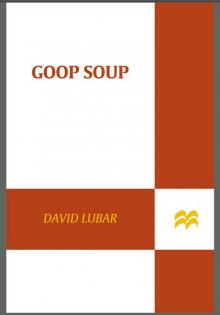 Goop Soup
Goop Soup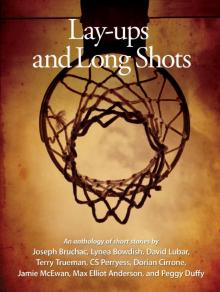 Lay-ups and Long Shots
Lay-ups and Long Shots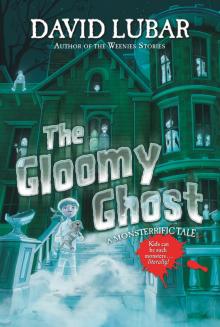 The Gloomy Ghost
The Gloomy Ghost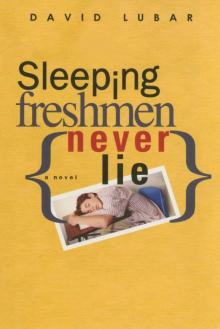 Sleeping Freshmen Never Lie
Sleeping Freshmen Never Lie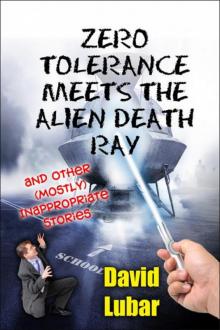 Zero Tolerance Meets the Alien Death Ray and Other (Mostly) Inappropriate Stories
Zero Tolerance Meets the Alien Death Ray and Other (Mostly) Inappropriate Stories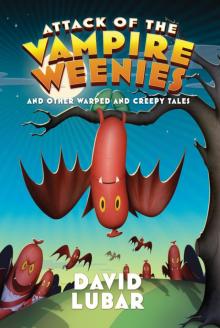 Attack of the Vampire Weenies
Attack of the Vampire Weenies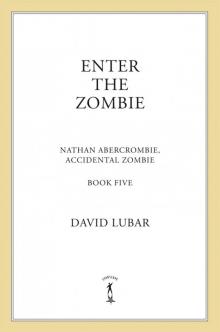 Enter the Zombie
Enter the Zombie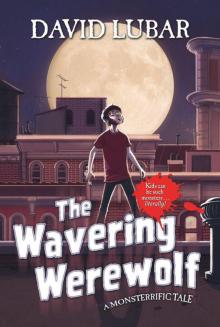 The Wavering Werewolf_A Monsterrific Tale
The Wavering Werewolf_A Monsterrific Tale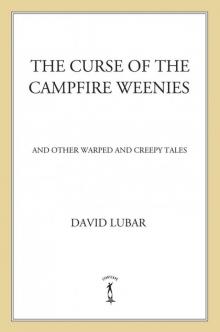 The Curse of the Campfire Weenies
The Curse of the Campfire Weenies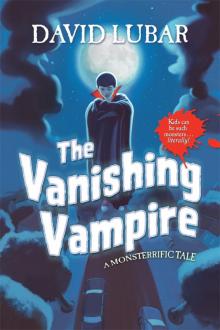 The Vanishing Vampire
The Vanishing Vampire